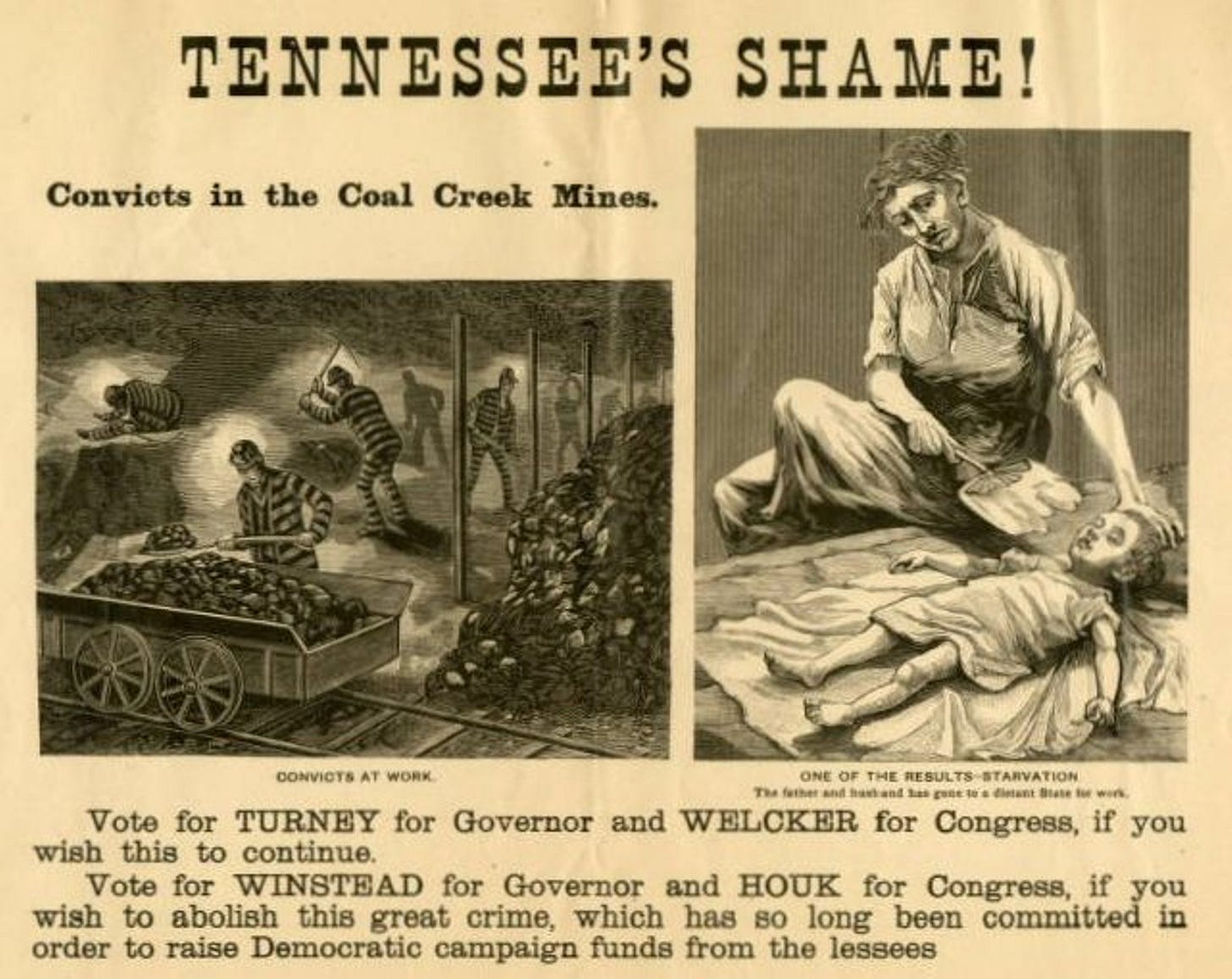The Coal Miners' Revolt in Tennessee
Tennessee's Tradition of deep solidarity
Last week, Tennessee’s Highlander center went up in flames. It is suspected that it is a white nationalist because they found a White Nationalist symbol. Highlander Center represented solidarity between laborers black and white and that has been the tradition in Tennessee. Today, I want to tell you the story of the Coal Miner’s War!

While reconstruction called for redistribution of land to former slaves, President Andrew Johnson reversed this decree and returned the land back to the owners of the plantations. Soon afterwards, former slave states started to enact laws known as black codes: vague laws that criminalized ADOS for violations such as “vagrancy.” By 1877, most former slave states required a black person to be employed by a wealthy person or a corporation in order to stay out of prison. Once arrested and convicted by the black codes, these people were sentenced to prison. Prisoners were then “leased” out to private companies like mining companies, railroads, factories and even back to the plantation.
Two of the biggest abusers of prison labor were the Knoxville Mining Company and the Cumberland Coal Company.
However, newly emboldened Union members led by Eugene Merrill organized a meeting in Anderson County on the night of July 21th, 1891. They were able to gather 2,000 miners armed with shotguns, rifles and pistols. They marched into the stockade where the convicts were held. The guard at the prison surrendered. The miners freed the convicts and put them on a train back to Knoxville.
But, of course the mining company didn't learn their lesson. They turned to the state of Tennessee for protection and re-used convict leasing. By then, the unions were having no more. On October 28, 1891, the miners came back with their arsenal, freed the prisoners and sent them back home on a train. But this time, they burned the entire mine down!
All the big establishment newspapers were lined up against the miners. They called the miners inhumane, ruffians and called for their arrest instead. The miners didn’t care. They promised to burn down any mine that used convict labor, and they kept to their word. For the next two years, the miners and the convicts joined together against the injustice. The miners would free the prisoners and burn down the mines.
In order to prevent further mines from being burned down, on December 31st, 1895, Tennessee became the first state in the South to abolish the convict leasing program.

